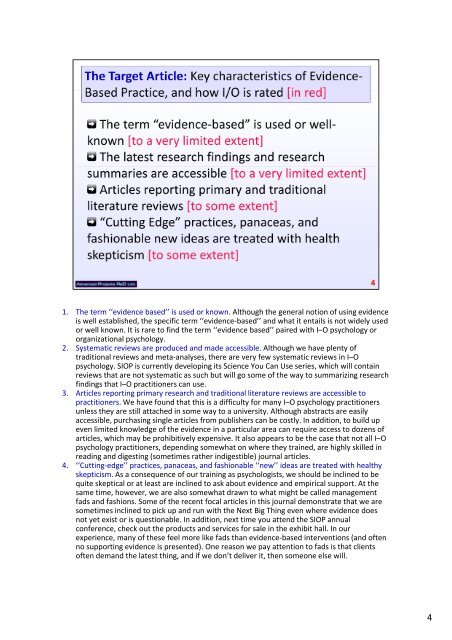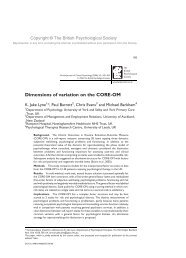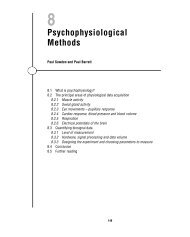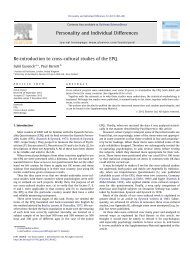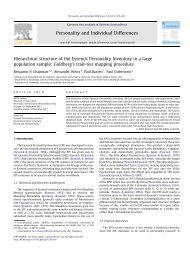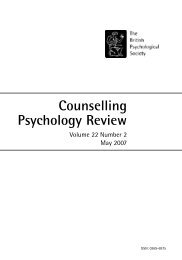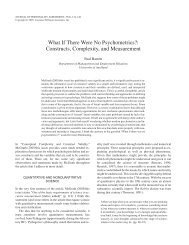Evidence-based IO psychology
Evidence-based IO psychology
Evidence-based IO psychology
You also want an ePaper? Increase the reach of your titles
YUMPU automatically turns print PDFs into web optimized ePapers that Google loves.
1. The term ‘‘evidence <strong>based</strong>’’ is used or known. Although the general notion of using evidence<br />
is well established, the specific term ‘‘evidence‐<strong>based</strong>’’ and what it entails is not widely used<br />
or well known. It is rare to find the term ‘‘evidence <strong>based</strong>’’ paired with I–O <strong>psychology</strong> or<br />
organizational <strong>psychology</strong>.<br />
2. Systematic reviews are produced and made accessible. Although we have plenty of<br />
traditional reviews and meta‐analyses, there are very few systematic reviews in I–O<br />
<strong>psychology</strong>. S<strong>IO</strong>P is currently developing its Science You Can Use series, which will contain<br />
reviews that are not systematic as such but will go some of the way to summarizing research<br />
findings that I–O practitioners can use.<br />
3. Articles reporting gprimary research and traditional literature reviews are accessible to<br />
practitioners. We have found that this is a difficulty for many I–O <strong>psychology</strong> practitioners<br />
unless they are still attached in some way to a university. Although abstracts are easily<br />
accessible, purchasing single articles from publishers can be costly. In addition, to build up<br />
even limited knowledge of the evidence in a particular area can require access to dozens of<br />
articles, which may be prohibitively expensive. It also appears to be the case that not all I–O<br />
<strong>psychology</strong> practitioners, depending somewhat on where they trained, are highly skilled in<br />
reading and digesting (sometimes rather indigestible) journal articles.<br />
4. ‘‘Cutting‐edge’’ practices, panaceas, and fashionable ‘‘new’’ ideas are treated with healthy<br />
skepticism. i As a consequence of our training i as psychologists, we should ldbe inclined dto be<br />
quite skeptical or at least are inclined to ask about evidence and empirical support. At the<br />
same time, however, we are also somewhat drawn to what might be called management<br />
fads and fashions. Some of the recent focal articles in this journal demonstrate that we are<br />
sometimes inclined to pick up and run with the Next Big Thing even where evidence does<br />
not yet exist or is questionable. In addition, next time you attend the S<strong>IO</strong>P annual<br />
conference, check out the products and services for sale in the exhibit hall. In our<br />
experience, many of these feel more like fads than evidence‐<strong>based</strong> interventions (and often<br />
no supporting evidence is presented). One reason we pay pyattention to fads is that clients<br />
often demand the latest thing, and if we don’t deliver it, then someone else will.<br />
4


